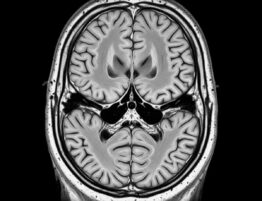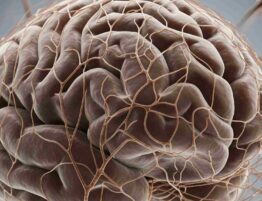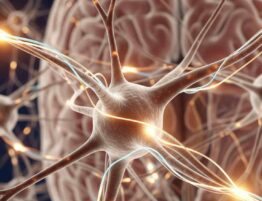The nervous system (NS) is very fragile and vulnerable. It is essential in the functioning of all body systems. The nervous system often suffers due to stress. Stressful situations may happen everywhere.
Stress may be periodic or chronic. Many doctors even believe that all diseases arise from it. But there are many ways to deal with stress. You need to learn how to use these techniques; stressful situations will not cause serious harm.
Understanding this topic is crucial to help lower stress effectively. Don’t waste time – check out our essential tips for improving mental health.
Understanding Stress and the Nervous System
It is a natural response to challenging situations. Stress significantly impacts the nervous system. This condition influences overall health. When confronted with a stressful event, the body’s “fight or flight” response activates. It releases hormones like adrenaline and cortisol. These hormones prepare the body to respond to perceived threats. They increase such aspects:
- heart rate;
- blood pressure;
- energy supplies.
What is Stress?
Stress is a common and potentially mentally debilitating condition. Stress occurs in response to external influences. Difficult situations, monotonous activities, and emotional factors can cause it. This feeling helps to adapt to a changing environment. Sometimes, stress can cause negative health consequences. There are several types of it. Typically, when we use the term “stress,” we mean distress (“extreme stress”). This condition negatively affects the human body. Which characteristic is typical of eustress? It is the so-called “beneficial stress.” The functional reserve of the body increases, and adaptation occurs.
Overview of the Nervous System
It is a complex system responsible for coordinating and regulating the functions of the body. It consists of two main parts:
- Central (CNS): Consists of the brain and spinal cord. It controls most body and mind functions.
- Peripheral (PNS): Includes all the nerves outside the CNS. It connects the CNS to limbs and organs.
The key components include:
- Neurons: Nerve cells that transmit signals throughout the body.
- Sensory: These neurons carry information from sensory receptors to the CNS.
- Motor: Such neurons transmit commands from the CNS to muscles and glands.
- Autonomic NS: Regulates involuntary functions – heartbeat and digestion. It is crucial in the stages of stress.
Understanding the NS’s structure and function is essential. It helps to comprehend how stress and other factors impact health.
The Connection Between Stress and the Nervous System
This aspect is significant. It involves several key processes:
- Activation of the Autonomic NS: Triggers the “fight or flight” response. It releases adrenaline and cortisol.
- Chronic Stress Effects: This leads to neuroinflammation. Chronic stress impairs neuron function. It contributes to mental health issues.
- Disruption of Homeostasis: Continuous activation of the stress cycle breaks the body’s balance. It affects sleep, digestion, and immune function.
Individuals must understand this connection. It highlights the importance of effective stress management strategies for overall health.
The Stress Response – “Fight or Flight” Mechanism
The stress response is also known as the ‘fight or flight’ mechanism. It is the body’s immediate reaction to perceived threats. When faced with danger, the autonomic NS triggers the release of adrenaline and cortisol. It prepares the body to confront or escape danger. This response increases heart rate, blood pressure, and energy levels.
The Role of Adrenaline
It is also known as epinephrine. It is crucial in the body’s stress response. Its effects include:
- Increased Heart Rate: Boosts blood flow to muscles and vital organs.
- Elevated Blood Pressure: Enhances oxygen delivery throughout the body.
- Expanded Airways: Improves oxygen intake for heightened alertness.
- Energy Boost: Releases glucose from energy stores, increasing physical performance.
Other Stress Hormones and Their Impact
Cortisol and norepinephrine significantly impact the body. Here is how:
- Cortisol: This hormone regulates metabolism. Also, it reduces inflammation. Cortisol helps control blood sugar levels. Chronic elevation can impair immune function. It leads to weight gain.
- Norepinephrine: Increases heart rate and blood pressure. It enhances alertness and focus.
These hormones are vital in the body’s overall stressful response.
Chronic Stress and its Consequences on the Nervous System
This condition leads to prolonged neuroinflammation. Chronic stress impairs neuron function and connectivity. It increases the risk of mental health disorders such as anxiety and depression. Chronic stress contributes to cognitive decline. Persistent stress also disrupts sleep patterns and weakens the immune system. It exacerbates overall health issues.
Prolonged Activation of the Stress Response
This aspect can lead to serious health problems. The continuous release of stress hormones like cortisol and adrenaline disrupts bodily functions. It contributes to high blood pressure, heart disease, and metabolic disorders. It can also lead to the exhaustion stage of stress. There, the body’s ability to manage stress diminishes.
Stress and Nervous System Disorders
Chronic stress is generally linked to various NS disorders. They include:
- Anxiety Disorders: Persistent stress increases the risk of generalized illness and panic attacks.
- Depression: Prolonged stress can lead to biochemical changes in the brain. They contribute to depression.
- Neuropathy: Stress exacerbates pain and numbness.
- Insomnia: Chronic stress disrupts sleep patterns. It leads to insomnia and other sleep disorders.
Managing stress is crucial for preventing and mitigating these conditions.
How the Nervous System Responds to Stress
The NS responds to stressful conditions. It initiates a series of physiological reactions. They are generally designed to prepare the body for challenges. Key processes include the activation of the autonomic NS. It triggers the “fight or flight” response. It leads to the release of hormones like adrenaline and cortisol. They enhance alertness, heart rate, and energy levels.
Effects of Stress on the Central Nervous System
Stressful situations exert profound effects on the CNS. It influences its structure and function. Key effects include:
- Neurotransmitter Imbalance: Stress alters neurotransmitter levels. They affect mood and cognition.
- Hippocampal Atrophy: Chronic stress can shrink the hippocampus. It impacts memory and learning.
- Amygdala Activation: Heightened activity in the amygdala amplifies emotional responses to stressors.
- Neuroplasticity Changes: Stress can impair neuroplasticity, the brain’s ability to adapt and reorganize.
These changes highlight how your brain uses them to process and manage stress responses. They influence mental health.
Effects of Stress on the Peripheral Nervous System
Stress triggers physiological changes. They prepare the body for action. Main effects include:
- Autonomic NS Activation: Stress activates the sympathetic branch. It increases heart rate and blood pressure.
- Peripheral Neuropathy: Chronic stress can exacerbate neuropathic symptoms. It causes pain, tingling, and numbness in the extremities.
- Immune System Suppression: Prolonged stress suppresses its function. It increases susceptibility to infections and illnesses.
Can stress cause diarrhea? Yes, stress can also disrupt gastrointestinal function, potentially causing diarrhea or constipation. Chronic stress leads to diarrhea or constipation. These responses underscore how stress impacts the PNS. They influence physical health and sensory perceptions.
Stress and Neuronal Plasticity
Nervous tension influences neuronal plasticity. The brain can adapt and reorganize in response to experiences. Crucial mechanisms include:
- Synaptic Plasticity: Stress alters these connections between neurons. They affect communication and neural circuits.
- Structural Changes: Chronic stress can lead to dendritic remodeling. It causes changes in brain regions. They are generally involved in emotion and cognition.
- Hormonal Regulation: The stress response cycle involves the release of cortisol. It modulates neuronal activity and plasticity.
Understanding these interactions sheds light on how stress impacts neuronal plasticity. It potentially influences learning, memory, and emotional responses.
Case Study – Stress and Its Impact on Neurological Health
Stress significantly affects the NS. It influences its structure and function. What are the key signs of stress affecting mental health? Understanding its impacts is crucial. IT will help with developing effective management strategies. This study explores real-life examples and scientific findings. They illustrate the profound implications of nervous conditions. For example, neuropathy, cognitive decline, and emotional well-being.
Example Scenario of Stress-Induced Neurological Complications
Imagine a scenario where chronic stress leads to neurological complications. Here is it:
- Headaches: Persistent stress triggers tension migraines.
- Memory Issues: Chronic stress impairs concentration and memory retrieval.
- Sleep Disorders: Insomnia or disrupted sleep patterns due to heightened stress levels.
- Gastrointestinal Problems: Stress exacerbates conditions. They are like irritable bowel syndrome (IBS).
- Muscle Tension: Physical symptoms of stress include stiffness or pain.
- Anxiety and Depression: Chronic stress increases their risk.
This scenario illustrates how physical symptoms of stress manifest alongside neurological complications. It impacts overall health and well-being.
Intervention and Outcome
This aspect involves using stress management techniques. Among them are:
- mindfulness;
- exercise;
- therapy.
These methods help to mitigate stress levels. Monitoring neurological symptoms and adjusting treatment plans are crucial. The outcome focuses on improving cognitive function. It reduces anxiety. Also, the outcome alleviates physically stressful symptoms.
Effective Ways to Manage Stress for a Healthy Nervous System
These steps are crucial for maintaining a healthy NS. Effective strategies include:
- Regular Exercise: Promotes endorphin release and reduces cortisol levels.
- Mindfulness and Meditation: Calms the mind and reduces stress hormones.
- Healthy Diet: Supports brain health and regulates mood.
- Adequate Sleep: Restores brain function and reduces stress.
- Social Support: Enhances resilience and buffers against stress.
Incorporating these practices into daily routines helps optimize NS function. Also, it promotes mental clarity and emotional stability.
Emphasizing Healthy Lifestyle Choices
Following these methods is vital for mitigating the impact of stress on health. Essential practices include:
- Balanced Diet: Provides essential nutrients to support immune function and regulate digestion.
- Regular Exercise: Reduces stressful hormones and promotes physical and mental well-being.
- Adequate Sleep: Supports cognitive function and mood regulation.
- Stress Management Techniques: Mindfulness, yoga, or deep breathing exercises.
- Hydration: Maintains proper bodily functions. They include digestion and toxin removal.
Prioritizing these lifestyle choices can help maintain a healthy NS and digestive health.
The Role of Regular Exercise in Stress Reduction
They are crucial in reducing stress. Regular exercises promote the release of endorphins, which are natural mood lifters. Physical activity also helps lower levels of stress hormones like cortisol and adrenaline. Exercise enhances overall well-being. They improve sleep quality and increase energy levels. Regular training also promotes relaxation. Individuals should incorporate them into daily routines.
Stress Management Techniques
Effective practices help break the stress response cycle and promote well-being. These include:
- Deep Breathing Exercises: They calm the NS and reduce physiological signs of stress.
- Progressive Muscle Relaxation: Relieves muscle tension and promotes relaxation.
- Yoga: This technique combines physical postures, breathing exercises, and meditation. Yoga alleviates stress and improves flexibility.
Incorporating these practices into daily routines can enhance resilience. It reduces the impact of stress on mental and physical health.
How Lone Star Neurology Can Assist in Managing Stress-related Neurological Disorders
Our medical center offers specialized care in managing stress-related neurological disorders. Our team of experts provides comprehensive evaluations and personalized treatment plans. They are generally tailored to each patient’s needs. We integrate advanced diagnostic techniques with evidence-based therapies. They include stressful condition management techniques.
Our Expert Neurological Care
We provide expert neurological care. It focuses on compassionate treatment and personalized attention. Our team of specialists offers advanced diagnostics. Also, we provide innovative therapies. They address a wide range of neurological conditions. We are always committed to improving patient outcomes and quality of life. Our team does it through comprehensive care. It is generally tailored to individual needs and concerns.
Individualized Treatment Plans
At Lone Star Neurology, we develop individualized treatment plans tailored to each patient’s unique needs and circumstances. Our approach integrates evidence-based therapies and stages of stress management strategies. We address the physiological and psychological impacts of stress on neurological health.
Stress Management Resources at Lone Star Neurology
We offer comprehensive stress management resources. They include:
- mindfulness techniques;
- relaxation exercises;
- counseling services.
These resources help patients develop effective coping strategies. They reduce the impact of stress on neurological health. Contact us to get a professional consultation.













Please, leave your review
Write a comment: